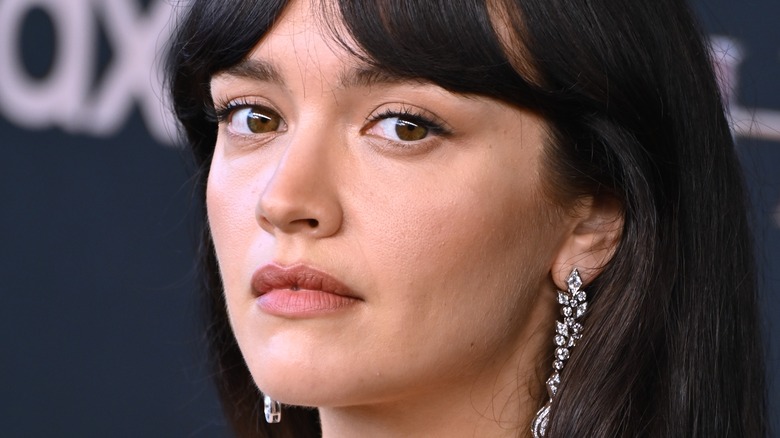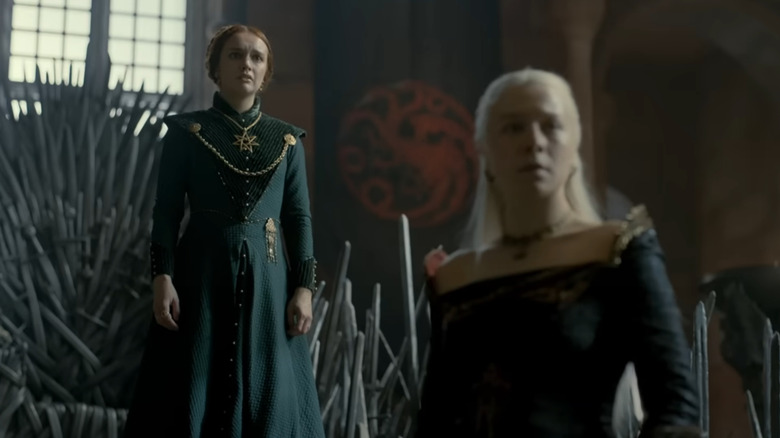Why Olivia Cooke Is Glad She's Not In House Of The Dragon's Debut Episode
When one hears that an actor is happy that they don't appear in a particular episode of the "Game of Thrones" franchise, it is probably safe to assume that the episode in question is a bloodbath reminiscent of the Red Wedding. However, it would seem as if that isn't always the case.
The upcoming "Game of Thrones" spin-off series "House of the Dragon" looks to expand on the thick mythology of the Targaryens. Of course, in typical "Thrones" fashion, we can also expect other families to join in the fight over the Iron Throne. Long before Daenerys Targaryen (Emilia Clarke) set her sights on King's Landing, characters like Lady Alicent Hightower and Princess Rhaenyra Targaryen played the deadly game of politics.
You might recognize Olivia Cooke, the actress playing the adult version of Lady Hightower, from her role as Art3mis in "Ready Player One." Notably, her role in "House of the Dragon" is a far cry from her independent character in the previously mentioned movie because Lady Hightower is absolutely dedicated to tradition to an almost fanatical level. Although considered one of the main stars of "House of the Dragon," Cooke does not appear in the first episode, and it seems like she is definitely okay with that, but for a surprising reason.
Cooke does not like seeing herself on screen
According to Vogue, the first episodes of "House of the Dragon" feature a younger version of Alicent Hightower (Emily Carey), a move that helps to flesh out the character's long-term relationship with her father. As an inadvertent byproduct, this narrative choice also helped Olivia Cooke during the world premiere screening of the show's first episode.
In contrast to what Cooke referred to as previous "excruciating" experiences, Cooke said that she enjoyed the premiere of "House of the Dragon." So, what made this premiere any different? "It was actually amazing to go to a premiere and not have to dread seeing your face pop up," Cooke said. "Just to be able to watch it as a punter was fabulous and to see all my pals' faces 100 times the size, but not mine. I had a great time!"
According to Sparc, Cooke's aversion to seeing herself on screens is actually shared among many actors in Hollywood and, in a wider sense, the general public. Interestingly, this phenomenon goes well beyond general embarrassment. In fact, it's a well-documented combination of a concept known as the "mere exposure effect" and confirmation bias. The mere exposure effect states that people are usually most comfortable with things that they see often, and since we often see ourselves in a mirror, the images taken by cameras cause our attributes to be flipped. This means that we subconsciously see a deformed version of ourselves, which results in subjects not typically enjoying the experience.
All the same, let's at least hope that most audiences enjoy "House of the Dragon" when it premieres on HBO on August 21.

